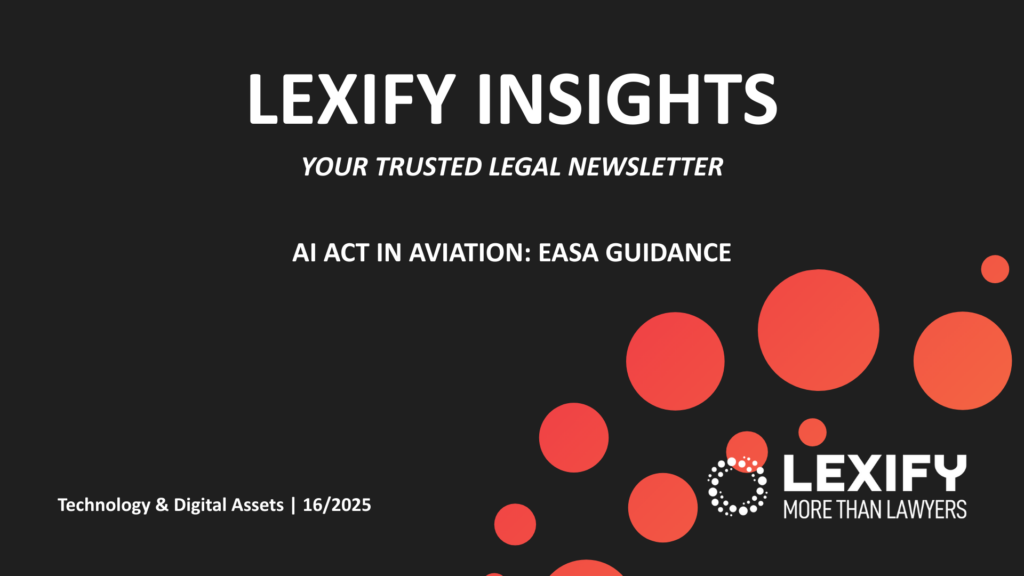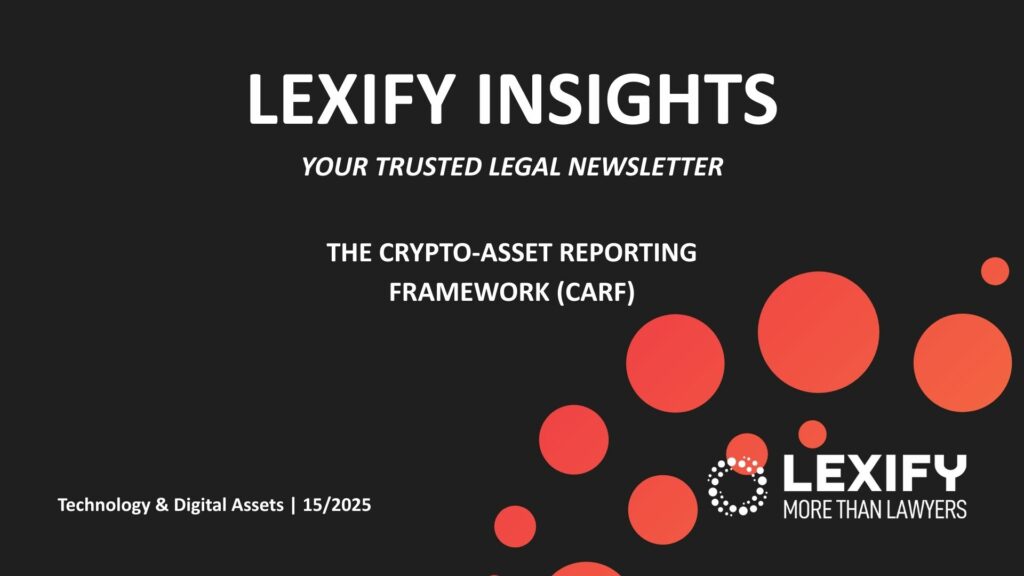Introduction
Regulation (EU) 2019/945 (the “Regulation”) is a key legislative act within the European Union that lays down the rules for the design, manufacture, and placing on the market of unmanned aircraft systems (“UAS” or “Drones”). The Regulation has undergone multiple amendments to reflect technological evolution and market needs, ensuring safety, traceability, and harmonization across EU member states. For the purposes of this article, the obligations set out herein apply to importers, defined as any natural or legal person established in the Union who places on the Union market a product originating from a third country, including Switzerland.
Application of the Regulation
The Regulation applies to three main categories of Drones: open, specific and certified
Whether used recreationally or commercially, Drones entering the European market must comply with this Regulation. Importers, in particular, are subject to strict legal obligations, especially when sourcing products from non-EU countries like Switzerland.
Obligations of European Importers for Drones Manufactured in Switzerland
The applicable obligations may differ depending on the type of Drones. For instance, if the Drones integrates Artificial Intelligence (AI), then the provisions of the Regulation UE 2024/1689 (“AI Act”) (which are surprisingly similar to those in the Regulation) will also apply in addition to the obligations under Article 8 of the Regulation.
In particular, importers must: (i) ensure the manufacturer has carried out the conformity assessment procedure; (ii) verify that the required technical documentation has been prepared in accordance with the Regulation; (iii) check for CE marking and, where applicable, class identification (e.g., C1, C2, etc.); (iv) ensure the product includes information about the manufacturer and the EU declaration of conformity, which must be affixed according to the methods set out in the Regulation. Although this step may seem obvious, failure to comply may result in joint liability between the manufacturer and importer for non-compliance with disclosure obligations; and (v) confirm that the manufacturer has fulfilled other key obligations outlined in Article 6, paragraphs 5 and 6, of the Regulation.
Importers, like manufacturers, must include their own contact details, including name, company name, and address. They are also responsible for ensuring that informational materials and user instructions provided by the manufacturer are clear and understandable for end users.
Additional Obligations
Importers are also responsible for:
- storage conditions: the importer must ensure storage conditions comply with regulatory requirements, so the drone’s safety and conformity are preserved;
- product sampling and testing: if risks are identified, importers must carry out sample testing of the product;
- complaint log and communication: importers must keep a register of complaints and communicate relevant information to distributors;
- document retention: a copy of the EU declaration of conformity must be retained for 10 years from the date the product is placed on the market. The importer must also ensure that technical documentation can be made available to competent authorities;
- cooperation obligation: upon request by national authorities, importers must provide all necessary information; and
- notification obligation: for UAS classified as Class 5 or 6, a notification to the market surveillance authority in the Member State of the importer’s main establishment is required.
Conclusion
Importers of Drones manufactured outside the EU, such as those produced in Switzerland, hold a critical compliance role under both the Regulation and, where applicable, the AI Act.
Their responsibilities extend far beyond mere distribution; they are jointly accountable with manufacturers for ensuring that drones meet EU safety, transparency, and conformity standards.
By properly managing documentation, quality assurance, storage, and regulatory communications, importers not only fulfill legal duties but also contribute significantly to consumer safety and market reliability. Failure to comply, on the other hand, may expose them to legal liability and commercial risks, making regulatory awareness and diligence indispensable in the evolving drone and AI landscape.
Lexify As Your Consultant
Lexify continuously monitors regulatory developments and assists European and international manufacturers in launching their Drones. For further information or support, our legal team is at your disposal.
Connect with us
Thank you for taking the time to read our article. We hope you found it informative and engaging. If you have any questions, feedback, or would like to explore our services further, we’re here to assist you.

Follow Us
Stay updated and connected with us on social media for the latest news, insights, and updates:
Linkedin Lexify

